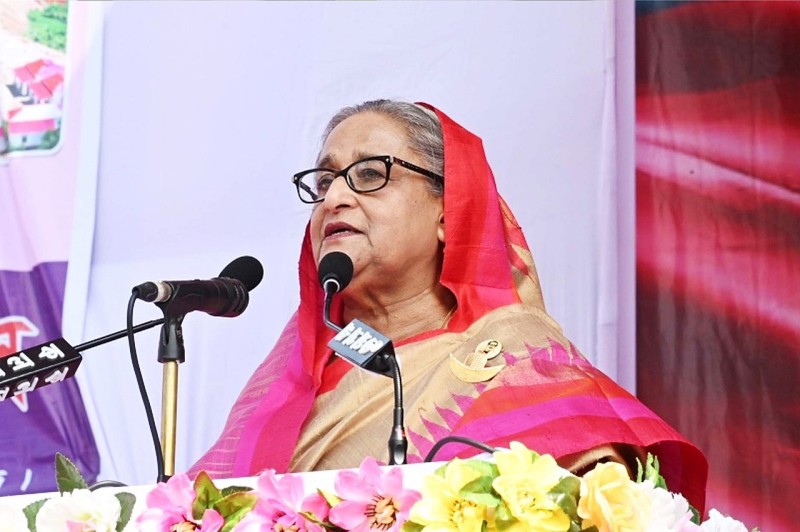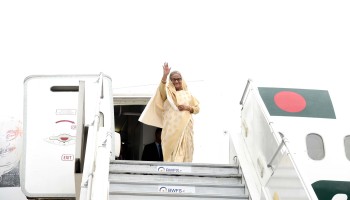Bangladesh’s International Crimes Tribunal (ICT) on Monday sentenced ousted Prime Minister Sheikh Hasina to death in absentia for crimes against humanity, convicting her of orchestrating a brutal crackdown on last year’s student-led uprising.
Alongside Hasina, the tribunal imposed a death sentence on former Home Minister Asaduzzaman Khan Kamal and sentenced ex-Inspector General of Police Chowdhury Abdullah Al-Mamun to five years in prison, according to The Daily Star.
Hasina, the country’s longest-serving leader and daughter of Bangladesh’s founding president Sheikh Mujibur Rahman, served as prime minister from 1996 to 2001 and again from 2009 until her removal last year. Her government has long faced accusations of enforced disappearances, extrajudicial killings, media suppression, and widespread corruption. The blatant theft of public funds fueled outrage in a country where nearly 19 percent of its 173 million people live in poverty, according to the World Bank.
Chief Prosecutor Mohammad Tajul Islam told the court that “if each of the 1,400 murders carried out under her direction were to be punished separately, she should face 1,400 death sentences.”
The tribunal reportedly found Hasina guilty on two of five charges, including incitement and ordering security forces to use lethal force, and described the charges as “proven” in its 453-page verdict. Prosecutors also accused her of authorizing drones, helicopters, and other heavy weapons against protesters.
Hasina, who has been living in India since fleeing Bangladesh in August 2024, rejected the verdict as illegitimate. In a statement posted to her party, the Awami League, official Facebook page, she called the tribunal “rigged” and said it was presided over by “an unelected government with no democratic mandate.” She accused interim leader Muhammad Yunus and his administration of attempting to destroy the Awami League as a political force and undermining Bangladesh’s institutions.
“Millions of Bangladeshis toiling under the chaotic, violent and socially-regressive administration of Dr. Mohammad Yunus will not be fooled by this attempt to short-change them of their democratic rights,” Hasina stated. “The trials conducted by the so-called International Crimes Tribunal were never intended to achieve justice or provide any genuine insight into the events of July and August 2025. Rather, their purpose was to scapegoat the Awami League and distract the world’s attention from the failings of Dr. Yunus and his ministers.”
“Police have retreated from the country’s crime-ridden streets, judicial fairness has been subverted, attacks on Awami League supporters have gone unpunished, religious minorities are assaulted, and women’s rights suppressed,” she added.
Local media reported that security forces were deployed across Dhaka ahead of the verdict, with sporadic arson and crude bomb attacks in parts of the city. Authorities warned of shoot-on-sight orders in response to potential unrest, and large public screens were set up near the tribunal to broadcast the verdict.
Hasina was first charged in June, when the tribunal accepted allegations that she “incited, encouraged and ordered” a nationwide crackdown that killed at least 1,500 people and injured more than 25,000, according to local reports. The court issued arrest warrants for Hasina and two senior officials—former Home Minister Asaduzzaman Khan Kamal and ex-police chief Chowdhury Mamun—who faced five counts including incitement, complicity, and failure to prevent mass murder.
The violent suppression of the 2024 protests coincided with the end of Hasina’s 15-year rule. What began as student demonstrations against a civil service quota system quickly escalated into nationwide unrest.
The ICT—originally established in 2010 during Hasina’s own government to try suspects of war crimes from Bangladesh’s 1971 war of independence against Pakistan—has become the central venue for cases tied to last year’s crackdown.






